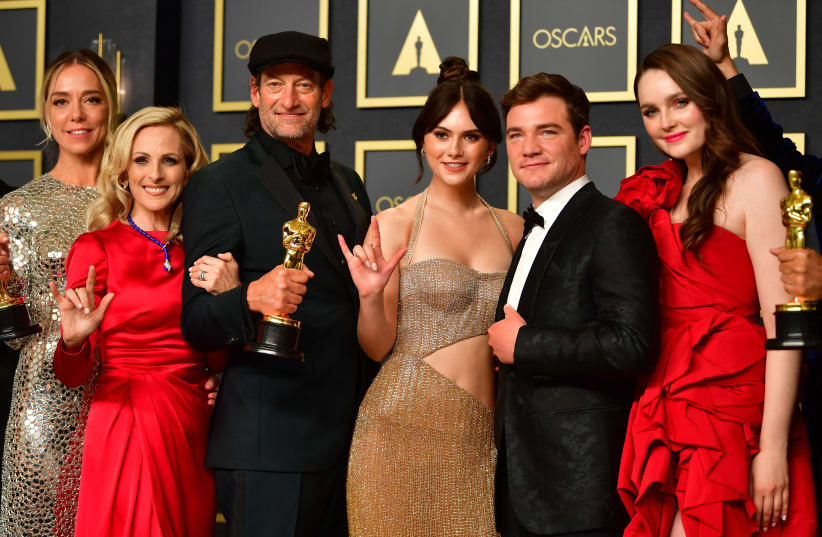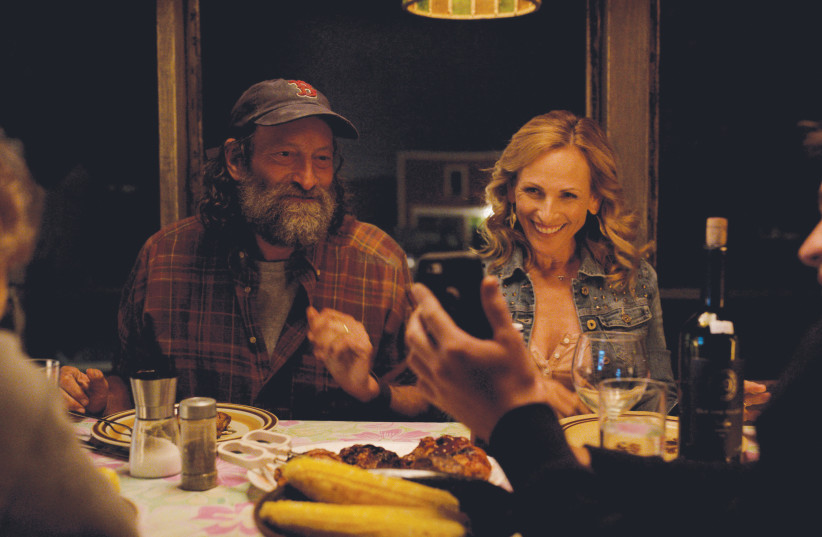When the Oscar for Best Picture was announced and CODA won, no one was more pleased than Jay Ruderman, president of the Ruderman Family Foundation, which is active in both the US and Israel and is an international leader in advocating for the inclusion of people with disabilities in entertainment.
That was because the film, which in addition to Best Picture also won Best Supporting Actor for Troy Kotsur’s scene-stealing performance and Best Adapted Screenplay for Sian Heder’s script, featured three deaf actors in leading roles, one of whom was Marlee Matlin, the first deaf actor to win an Oscar, for her performance in Children of a Lesser God in 1987. The consensus among audiences was that these actors’ performances were key in making the movie authentic.
“We are gratified that CODA’s Academy Awards for Best Picture, Best Actor in a Supporting Role and Best Adapted Screenplay have generated the latest groundbreaking progress in the movement towards greater authentic representation and inclusion of people with disabilities in the entertainment industry,” said Ruderman.
“Although these milestones have fortunately become more common in Hollywood in recent years – including the SAG Award for CODA cast member Troy Kotsur just one month ago – we must continue to reinforce the industry’s pro-social choices and advocate for further advancement. Given the long-term objective of Hollywood fully embracing disability as part of its definition of diversity, the honor for CODA at the 94th Academy Awards provides yet another occasion to celebrate, but also to look forward to a more inclusive future in which people with disabilities have access to far more opportunities in entertainment.”
Even before its Oscar and SAG wins, CODA received the Ruderman Foundation’s Seal of Authentic Representation award – which recognizes films and television series whose casting decisions demonstrate a commitment toward full inclusiveness in popular culture – for its casting choices. Matlin previously won the Morton E. Ruderman Award for her lifelong activism for people with disabilities.
A few weeks before the Oscar ceremony, Jay Ruderman, on a visit to Israel, was interviewed by The Jerusalem Post about his work to encourage inclusivity in the entertainment industry, and he spoke optimistically about what CODA represented and its chances for winning, at a time when many Oscar watchers did not consider it a front-runner.
“It’s a very important movie,” said Ruderman, who hosts a podcast, All Inclusive (allinclusive.com), focused on inclusion, innovation and social justice.
“We got into working on this issue because people with disabilities were not being portrayed accurately in entertainment, and we felt that the entertainment industry has such a huge impact,” he said.
He noted that at first, efforts at bringing inclusivity to the entertainment industry were focused more on race, gender and ethnicity than on disability, and he felt that it was important to focus on those with disabilities.
“It is super critical to portray those with a disability accurately, and so we began a movement to encourage more authentic representation. And soon, we began to see a real shift in the industry,” he said. “More and more movies and TV shows focus on these issues and have more authentic representation than ever.”
OVER THE last three years, four major Hollywood studios – CBS Entertainment, NBCUniversal, Paramount and Sony Pictures Entertainment – have adopted the foundation’s guidelines, committing to audition actors with disabilities for studio productions.
After a groundbreaking study conducted by the foundation in 2016 revealed that 95% of major characters with disabilities on TV were played by actors without disabilities, a follow-up study released by the foundation in 2020 documented progress, showing that 22% of all characters with disabilities on network television were portrayed authentically by an actor with the same disability.
But while the CODA win represented a high-water mark in authentic representation, Ruderman said that content creation itself is the next frontier.
“People with disabilities should not only be cast authentically but they should also be represented behind the camera,” he said.
The foundation is working toward this goal through various avenues, including partnering with the Academy of Motion Picture Arts & Sciences in its Academy Gold Internship Program by sending an intern, actress and screenwriter, Nicole Evans, to participate in the industry.
In December, several of Israel’s top television broadcasting and production companies signed a pledge, in an initiative spearheaded by the foundation, to audition actors with disabilities for each new studio production. The signatories included the KAN, Reshet, Yes and Hot.
In the pledge, on which the foundation collaborated with the Gesher Multicultural Film Fund and the Israeli Directors Guild, the companies have also committed to a more inclusive selection process for all jobs across the film industry, on- and off-screen.
“There are different ways of raising awareness, and we are always looking for something new to add,” Ruderman said.

